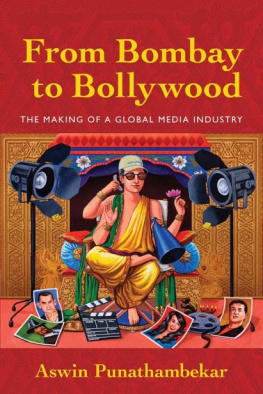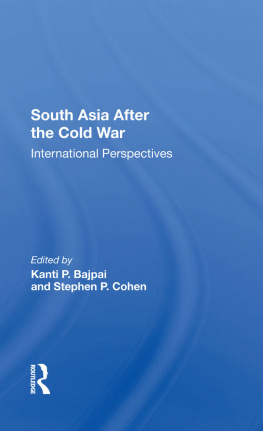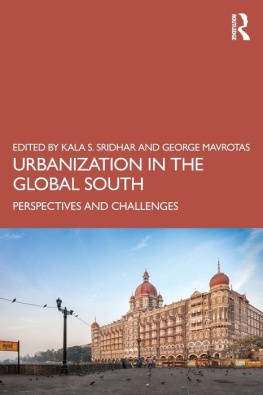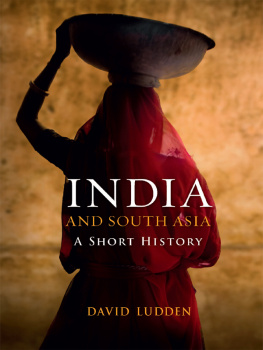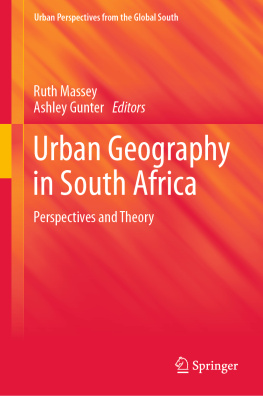Aswin Punathambekar - Global Digital Culture: Perspectives from South Asia
Here you can read online Aswin Punathambekar - Global Digital Culture: Perspectives from South Asia full text of the book (entire story) in english for free. Download pdf and epub, get meaning, cover and reviews about this ebook. publisher: University of Michigan Press, genre: Politics. Description of the work, (preface) as well as reviews are available. Best literature library LitArk.com created for fans of good reading and offers a wide selection of genres:
Romance novel
Science fiction
Adventure
Detective
Science
History
Home and family
Prose
Art
Politics
Computer
Non-fiction
Religion
Business
Children
Humor
Choose a favorite category and find really read worthwhile books. Enjoy immersion in the world of imagination, feel the emotions of the characters or learn something new for yourself, make an fascinating discovery.

- Book:Global Digital Culture: Perspectives from South Asia
- Author:
- Publisher:University of Michigan Press
- Genre:
- Rating:4 / 5
- Favourites:Add to favourites
- Your mark:
- 80
- 1
- 2
- 3
- 4
- 5
Global Digital Culture: Perspectives from South Asia: summary, description and annotation
We offer to read an annotation, description, summary or preface (depends on what the author of the book "Global Digital Culture: Perspectives from South Asia" wrote himself). If you haven't found the necessary information about the book — write in the comments, we will try to find it.
Global Digital Culture: Perspectives from South Asia — read online for free the complete book (whole text) full work
Below is the text of the book, divided by pages. System saving the place of the last page read, allows you to conveniently read the book "Global Digital Culture: Perspectives from South Asia" online for free, without having to search again every time where you left off. Put a bookmark, and you can go to the page where you finished reading at any time.
Font size:
Interval:
Bookmark:
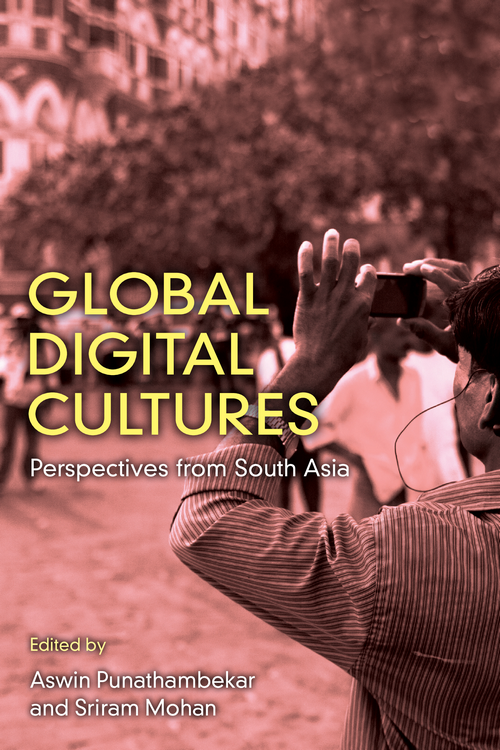
Aswin Punathambekar and Sriram Mohan, editors
University of Michigan Press Ann Arbor
Copyright 2019 by Aswin Punathambekar and Sriram Mohan
All rights reserved
This book may not be reproduced, in whole or in part, including illustrations, in any form (beyond that copying permitted by Sections 107 and 108 of the U.S. Copyright Law and except by reviewers for the public press), without written permission from the publisher.
Published in the United States of America by the
University of Michigan Press
Manufactured in the United States of America
A CIP catalog record for this book is available from the British Library.
Library of Congress Cataloging-in-Publication data has been applied for.
ISBN: 978-0-472-13140-2 (Hardcover : alk paper)
ISBN: 978-0-472-12531-9 (ebook)
Aswin Punathambekar and Sriram Mohan
Payal Arora
Shanti Kumar
Rahul Mukherjee
Daniel Arnaudo
Vishnupriya Das
Shruti Vaidya and Kentaro Toyama
Joyojeet Pal
Sangeet Kumar
Purnima Mankekar and Hannah Carlan
Sahana Udupa
Mobina Hashmi
Muhammad Nabil Zuberi
Wazhmah Osman
Digital materials related to this title can be found on the Fulcrum platform via the following citable URL: https://doi.org/10.3998/mpub.9561751
The idea for this book emerged from conversations that took place among some of the authors at a conference on Digital South Asia at the University of Michigans Center for South Asian Studies. At the conference, there was a collective recognition of the unfolding impact of digitalization on various aspects of social, cultural, and political life in South Asia. We had a keen sense of how much things had changed in the South Asian mediascape since the introduction of cable and satellite television in the late 1980s and early 1990s. We were also aware of the growing interest in media studies within South Asian studies, and hoped that the conference would resonate with scholars from various disciplines across the humanities and social sciences. As it turned out, the conference exceeded our expectations and it became clear to us that a volume of essays on digital media and culture in South Asia could, in fact, contribute to a broader academic and public conversation about digital cultures worldwide.
This would not have happened without the encouragement and support of Farina Mir. As the Director of the Center for South Asian Studies at Michigan, Farina has created a brilliant and generous community of scholars and students. We have learned a great deal from our interactions with a wide-ranging group of South Asianists at Michigan, and while we cannot name everyone here, we are particularly grateful to Will Glover, Matthew Hull, Ram Mahalingam, Madhumita Lahiri, and Mrinalini Sinha for their advice and encouragement.
This book is also part of a larger project on Global Digital Cultures that we are coordinating through the Global Media Studies Initiative housed in the Department of Communication Studies at Michigan. We are grateful to the International Institute for supporting our efforts through an Enterprise Grant, and current and former chairs of the Department of Communication StudiesSusan Douglas, Robin Means Coleman, and Nojin Kwakfor their enthusiastic support. The conference itself would not have been a success without stellar panel chairs, respondents, and note-takers. We would like to thank Madhumita Lahiri, Ram Mahalingam, Kentaro Toyama, Joyojeet Pal, Lia Wolock, and Vishnupriya Das in particular.
This project benefited greatly from the sharp insights and advice of colleagues including Katherine Sender, Megan Ankerson, Dan Herbert, Sarah Murray, Pavitra Sundar, Amanda Lotz, and Jean Christophe Plantin. Draft versions of the books introductory chapter were also discussed at the Media Studies Research Workshop, and we are thankful to Amanda Lotz and Annemarie Navar-Gill for launching and sustaining this crucial forum.
Finally, we would like to thank Mary Francis and her colleagues at the University of Michigan Press for their enthusiastic support, engagement, and editorial care.
Aswin Punathambekar and Sriram Mohan
July Boys (Sonti 2006), a documentary film about a software company in Bangalore that develops content for mobile phones (e.g., games and movie clips), opens on a gleaming, high-tech office space in which five young men discuss strategy for their latest software project. We learn that the headquarters of this company, July Systems, is in Santa Clara, California, and that many of the engineers and executives leading the product development office in Bangalore have lived and worked in Silicon Valley before moving back to India.
In exploring the cultural and business logics at work in this software company, the film focuses largely on the office interiors and situates the teams work routines within a transnational network involving tech capitals in India, the United States, and Western Europe. Glimpses of the world outside the officeshots of a noisy streetscape crowded with vehicles and pedestrianscut quickly to an air-conditioned interior with a tastefully designed break room, neatly ordered cubicles, and a gleaming restroom with a waiting area that has a comfortable couch and a television set. In this swanky interior space, one that seems completely disembedded from the rest of the city, the founder and chief executive officer (CEO) Rajesh Reddy declares that people like him are geography agnostic. Other men working in the company also wax eloquent about entrepreneurial energies being unleashed and, on the whole, offer explanations of Indias digital Page 2 revolution that rest on stories of individual talents and merit. Of course, Reddy-like figures are hardly unique to South Asia and emerge in accounts of digital culture in China, Ghana, and other parts of the world as well.
If this kind of narrative of global mobility, seemingly unburdened by any economic, political, or sociocultural factors reveals one imaginary of the digital, another comes into view in the American television comedy Silicon Valley. In an episode titled Daily Active Users, we get a rare glimpse into the world of click-farms located in, as one article bluntly put it, some third world country (think India or Bangladesh) (Edwards 2016). Toward the end of the episode, a scene of a phone conversation involving the marketing manager of a digital platform start-up asking for one thousand users every day for the next week cuts to a shot of a South Asian man waking up in a shared hostel. As he gets ready for work and winds his way through bustling streets on his bicycle, electric wires, cables, air conditioners, and other banal things that make up life in urban South Asia come into view. Just as the nameless man sits down in front of a computer and we imagine a lone user in a dimly lit cybercafe, the camera zooms out to reveal a cavernous warehouse filled with hundreds of men and women working assiduously to generate and boost the number of daily active users, clicks, likes, tweets, and impressions for global digital companies.
Such starkly contrasting narratives and representations offer the dominant imaginaries for understanding digital cultures outside the Anglophone Westtech capitals, unfettered mobility, an expanding middle class, and the support of a neoliberal state, or, on the other hand, as sites for cheap and low-level software testing, call centers, pirate networks, and click-farms. Either way, geography and time seem to become irrelevant as do the historical, political-economic, and social dimensions of the media infrastructures, platforms, and varied user-practices that define digital cultures anywhere in the world today. If the jet-setting software entrepreneurs in
Next pageFont size:
Interval:
Bookmark:
Similar books «Global Digital Culture: Perspectives from South Asia»
Look at similar books to Global Digital Culture: Perspectives from South Asia. We have selected literature similar in name and meaning in the hope of providing readers with more options to find new, interesting, not yet read works.
Discussion, reviews of the book Global Digital Culture: Perspectives from South Asia and just readers' own opinions. Leave your comments, write what you think about the work, its meaning or the main characters. Specify what exactly you liked and what you didn't like, and why you think so.

